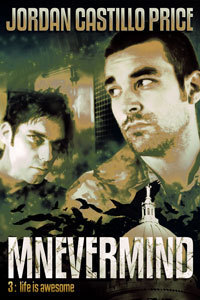date newest »
newest »
 newest »
newest »
 Zoe ~ Is incognito wrote: "I don't mind when SF has lots of technical explanations, but it has to make sense."
Zoe ~ Is incognito wrote: "I don't mind when SF has lots of technical explanations, but it has to make sense."I think I'm reacting to a SF story where the author spent easily 3000 explaining why a guy could stop time, doing it as a conversation between two guys who both knew physics but explained it in detail to one another anyway.
For me, explaining anything at all in fiction is a delicate thing that can so easily be done totally wrong. There were huge chunks of the DaVinci Code that I thought were mind-numbingly expository, but other folks enjoyed.
 For myself, the science of SF books really is dependent upon the type of story being told.
For myself, the science of SF books really is dependent upon the type of story being told.When reading space opera, I expect the science in the story be something that is explainable and accessible by everyone who's reading/watching the story (e.g. Star Trek/Star Wars) without too much explanation. I'm looking for the action and adventure here, not a two page discussion of how a particular technology works.
When reading military SF I expect it to be more tech heavy but still realistic (though I'm willing to accept warp/FTL drives - without explanation*). A little more exposition on how a laser works in space would be good, and sometimes interesting. I've learned more science reading SF books than I ever did in school.
If it's about how the characters in the story deal with a new technology and how it changes their lives, then the technology is just background, a springboard from which a story can grow. I want the story to stay focused on the characters.
======
*There's an author who likes to give detailed explanations about his fictional ships, weight ratios, speeds ... For an action based story, this really drags the story down.
 Lori S. wrote: "If it's about how the characters in the story deal with a new technology and how it changes their lives ... I want the story to stay focused on the characters."
Lori S. wrote: "If it's about how the characters in the story deal with a new technology and how it changes their lives ... I want the story to stay focused on the characters."This is a good way of articulation what I generally look for and what I aim to achieve, because the characters are the part that sticks with me.
 Wise considerations, as usual from you.
Wise considerations, as usual from you.I could write an ''Ode to JPC'' to praise how you handle world building and everything else in your books ;-). But I'm not a poet: suffice to say, I consider you one of the best authors around.





If the story deals with some crazy non existent technology the author either better know a heck of a lot about the science they're trying to explain, or find a way to explain it without using technical jargon.
I like how you handled it in Mnevermind. It's very believable.